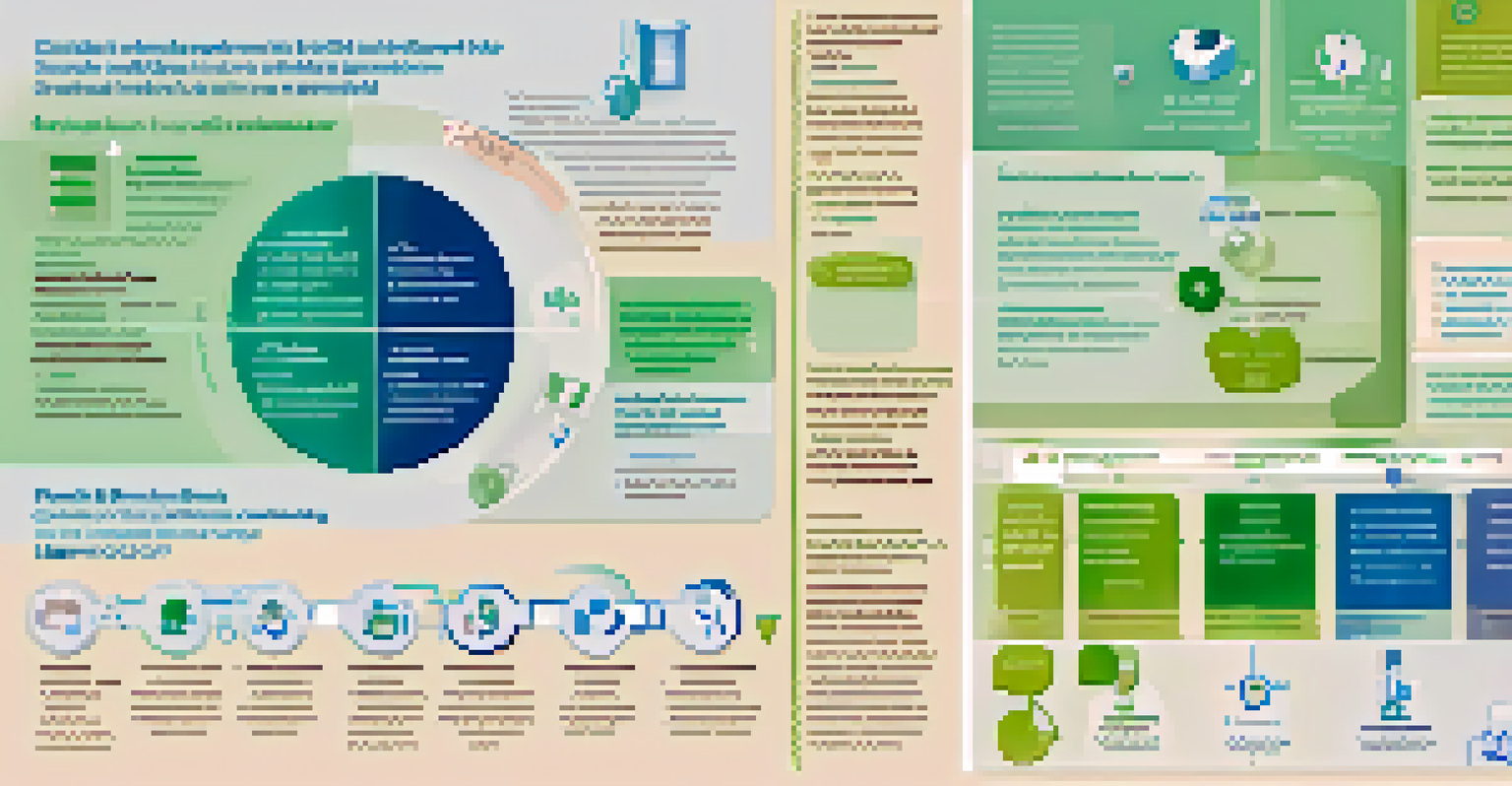The Role of Placebo in Clinical Trials and Its Ethical Implications

What is a Placebo and Its Purpose in Trials?
A placebo is an inert substance or treatment that has no therapeutic effect. In clinical trials, it's often given to a control group to assess the efficacy of a new drug or treatment. By comparing the outcomes of those receiving the placebo with those receiving the actual treatment, researchers can determine if the drug works or if improvements are due to psychological factors.
The mind is everything. What you think you become.
The primary purpose of a placebo is to serve as a baseline to measure the effect of the experimental treatment. This helps ensure that any changes in health status are genuinely due to the intervention rather than external influences. It’s like having a control panel in a science experiment; it allows researchers to isolate variables and draw clearer conclusions.
Additionally, placebos can help mitigate biases in clinical trials. When participants are unaware of whether they are receiving the actual treatment or the placebo, it minimizes the placebo effect, where patients might feel better simply because they believe they are being treated. This fair comparison is crucial in validating the results of a clinical trial.
The Placebo Effect: Mind Over Matter
The placebo effect is a fascinating phenomenon where patients experience real improvements in their condition after receiving a placebo. This effect illustrates the powerful connection between the mind and body. For example, if someone believes they are receiving a pain-relief medication, their brain can trigger the release of natural painkillers, leading to actual pain reduction.

This effect is not merely a trick of the mind; studies have shown that the placebo effect can lead to significant changes in measurable health outcomes. It raises the question of how much of our health is influenced by our beliefs and expectations. This insight can be both empowering and perplexing, highlighting the importance of mental state in physical health.
Placebo as a Research Tool
Placebos are crucial in clinical trials to determine the true efficacy of treatments by providing a baseline for comparison.
However, the placebo effect complicates the interpretation of clinical trial results. If a substantial portion of participants in the placebo group experiences improvement, it can be challenging to determine the actual efficacy of the treatment being tested. This underscores the importance of designing robust trials that account for these psychological factors.
Ethical Considerations of Using Placebos
The use of placebos in clinical trials raises several ethical questions. One major concern is whether it is ethical to withhold effective treatment from patients, especially in trials involving serious or life-threatening conditions. Patients participating in these trials often have high hopes for recovery, and receiving a placebo might feel like a betrayal of trust.
The placebo effect is real, and it can be a powerful tool in the hands of a physician.
Ethically, researchers must balance the need for scientific rigor with the responsibility to do no harm. Informed consent is crucial; patients should be made aware that they might receive a placebo. This transparency helps build trust and allows individuals to make informed decisions about their participation in clinical trials.
Moreover, guidelines from organizations like the World Medical Association suggest that placebos should only be used when no proven effective treatment exists. This ethical framework ensures that the integrity of the clinical trial process is upheld while respecting the rights and well-being of participants.
Informed Consent and Patient Autonomy
Informed consent is a cornerstone of ethical clinical research, ensuring that participants understand what they are signing up for. This includes clear communication about the possibility of receiving a placebo. It empowers patients to make decisions about their health and treatment options based on their values and preferences.
Patients should be made aware of the risks and benefits of participating in a trial, including the chance of receiving a placebo. This understanding fosters a sense of autonomy, allowing patients to weigh their options carefully. The more informed patients are, the more they can advocate for their own health needs.
Ethical Use of Placebos
The ethical implications of using placebos, especially in serious conditions, require careful consideration and informed consent from participants.
However, the challenge lies in conveying this information in an understandable way. Researchers must avoid jargon and ensure participants fully grasp what a placebo is and its role in the trial. This transparency is essential for maintaining ethical standards and ensuring participants feel respected and valued.
Regulatory Framework Surrounding Placebos
Regulatory bodies, like the FDA, have established guidelines for conducting clinical trials that include the use of placebos. These guidelines ensure that trials are designed ethically and scientifically sound. They help protect participants while also ensuring that the results can be trusted and applied to broader patient populations.
Moreover, the regulations require that placebos are used responsibly and only when necessary. For instance, if effective treatment options are available, using a placebo could be deemed unethical. This regulatory oversight aims to strike a balance between advancing medical knowledge and safeguarding patient welfare.
Additionally, investigators must report their use of placebos in trial protocols. This transparency ensures that stakeholders can evaluate the ethical implications of the study design. It fosters accountability in the research community, reinforcing the commitment to ethical standards in clinical trials.
The Placebo in Different Medical Fields
The role of placebos can vary significantly across different medical fields. In fields like psychiatry, the placebo effect can be particularly strong, as mental health treatments often rely on the patient's perception of improvement. This highlights the importance of understanding the psychological aspects of health care when designing trials in this area.
In contrast, in fields such as oncology, the ethical implications of using a placebo can be more pronounced. Patients with cancer often face serious health challenges, and withholding effective treatment raises profound ethical concerns. Researchers must tread carefully, ensuring that the pursuit of knowledge does not come at the expense of patient care.
Placebo Effect and Patient Care
Understanding the placebo effect can enhance patient outcomes, particularly in fields like psychiatry where mental perception significantly influences health.
This diversity in application showcases the need for tailored approaches when considering the use of placebos. Each medical field has its unique challenges and ethical considerations, emphasizing that a one-size-fits-all approach is not feasible in clinical research.
Future Directions in Placebo Research
As our understanding of the placebo effect evolves, future research may focus on harnessing its power to improve patient outcomes. There is potential for integrating placebo mechanisms into treatment protocols, especially in managing chronic conditions where psychological factors play a significant role. This could lead to more holistic approaches to patient care.
Moreover, advancements in neuroscience may shed light on how placebos work at a biological level, helping to demystify this complex phenomenon. Understanding the neurological pathways involved could pave the way for new treatment paradigms that leverage the mind-body connection.

Finally, ethical discussions surrounding placebos will likely continue to evolve as research progresses. Ongoing dialogue among researchers, ethicists, and patient advocates will be essential in navigating the ethical landscape of placebo use in clinical trials, ensuring that patient welfare remains at the forefront.